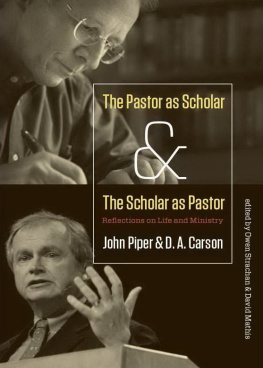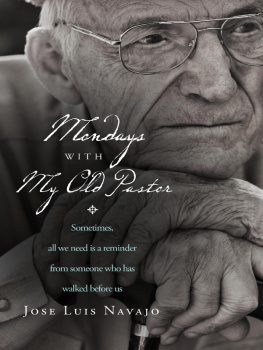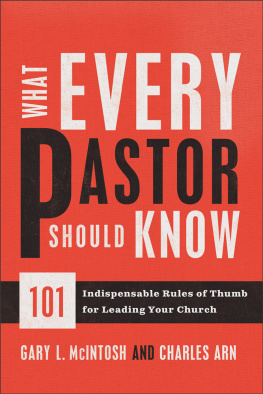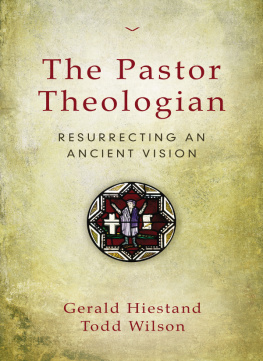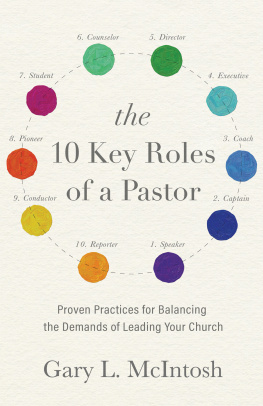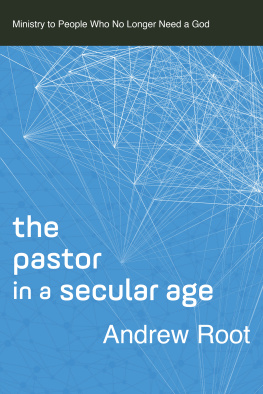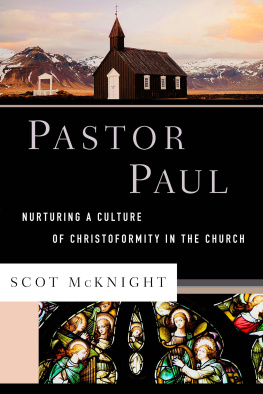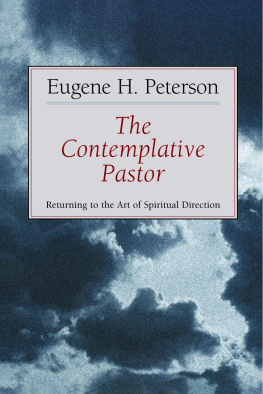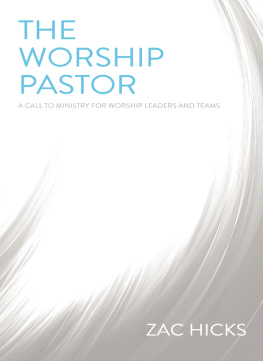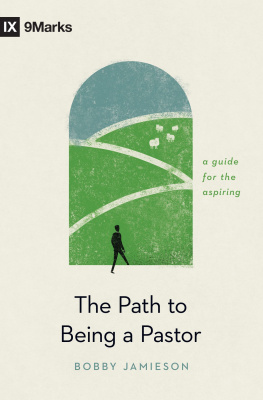Few books are so needed as this. Recapturing the vision of the pastor as scholar and the scholar as pastor is crucial for the health of the church. Who would not want to read John Piper and D. A. Carson as they reflect on this calling? This is one of the most encouraging and helpful books I have seen in a long time. If you are a pastor, read it. If you have a pastor, put it in his hands.
R. Albert Mohler Jr., President, The Southern Baptist Theological Seminary
These are important chapters by two of evangelicalisms most important thinkers. In an age that has largely forgotten the native connection between theology and the church, Piper and Carson remind us that these two worlds belong together. There can be, of course, no turning back the clock; the modern research university is here to stay. But here they offer us two good examples of how to navigate the contemporary terrain with a view to producing ecclesialtheologytheology in service to the church. This short book is a great beginning to a conversation that has been long overdue.
Gerald Hiestand, Senior Associate Pastor, Calvary Memorial Church, Oak Park, Illinois; Executive Director, Society for the Advancement of Ecclesial Theology
Who could count how many of us have had our lives changed by the ministries of John Piper and D. A. Carson? How many more have come to Christ or have been discipled in the gospel by pastors and teachers influenced by these leaders? This book is a riveting breed, granting us a candid, personal, and behind-the-scenes look at what the Lord has used to shape these men and their ministries. As you read this book, pray that the Lord Jesus would raise up, even now, the next generation of pastor-theologians and theologian-pastors to carry on the great work of Christ exaltation and kingdom mission.
Russell D. Moore, Dean, The Southern Baptist Theological Seminary
How we need pastors and professors who love God with their minds and their emotions. Two of the preeminent evangelicals of our day reflect here on what it means to love Christ with all our heart. I was encouraged, convicted, and challenged by this book. It is a treasure well worth reading and rereading.
Thomas R. Schreiner, James Buchanan Harrison Professor of New Testament Interpretation, The Southern Baptist Theological Seminary
Im deeply encouraged by the growing number of pastoral scholars and scholarly pastors. Probably no living Christians have done more to bring about this trend than D. A. Carson and John Piper. In this book, they will inspire you with stories from their journeys and challenge you with seasoned advice. Most of all, they will lead you to thank God that he gives you the privilege of leading and teaching his church.
Collin Hansen, Editorial Director, The Gospel Coalition; coauthor, A God-Sized Vision: Revival Stories thatStretch and Stir
The Pastor as Scholar
&
the Scholar as Pastor
The Pastor as Scholar:
A Personal Journey and the Joyful Place of Scholarship
This chapter has two parts. First is the story of my pilgrimage to the pastorate, and second is the way scholarship relates to the overarching theme of my ministrythat God is most glorified in us when we are most satisfied in him. The story I tell, from the time I was a boy in high school to the stage in life where I am now, has an angle to it, namely, highlighting the factors along the way that shaped me into the kind of pastor I am today, for good or for ill. The very fact that I am approaching the topic of pastor-scholar this way is immediately part of what you should learn about what makes me tick as a pastor, and how this relates to scholarship. Dont hold your breath waiting for me to say something about making room for academic scholarship in the busy life of a pastor.
Part One: The Making of a Pastor-Scholar
From one angle this approach is typically Americanwe Americans, in general, more quickly bare our souls to the world than many cultures do. For example, F. F. Bruce, representing the British of a generation ago (and perhaps much like todays), said at the end of his autobiography:
While some readers have observed that in these chapters I have said little about my domestic life, others have wondered why I have been so reticent about my religious experience. The reason is probably the same in both instances: I do not care to speak muchespecially in publicabout the things that mean most to me. Others do not share this inhibition, and have enriched their fellows by relating the inner story of the Lords dealings with themone thinks of Augustines Confessions and Bunyans Grace Abounding. But it calls for quite exceptional qualities to be able to do this kind of thing without self-consciousness or self-deception.
So now you can see I am trapped. My first reaction when I read this was to say, No wonder I have found his commentaries so dryhelpful in significant ways, but personally and theologically anemic. My second reaction was to say (this was in 1980, the year I left academia and entered the pastorate), Good grief! You say, I do not care to speak muchespecially in publicabout the things that mean most to me. I say, The only thing I care to speak aboutespecially in publicare the things that mean most to me!
Zero Empathy
Both his and my statements are probably overstatements. But seriously, this is one of the differences between me and many scholars, and it is part of what pushed me out of the guild. I am regularly bursting to say something about the most precious things in the universeand not in any disinterested, dispassionate, composed, detached, unemotional, so-called scholarly way, but rather with total interest, warm passion, discomposure, utter attachment, and fully emotional, and, I hope always, true. At least true is my goal.
I am with Jonathan Edwards all the way when he says:
I should think myself in the way of my duty to raise the affections of my hearers as high as possibly I can, provided that they are affected with nothing but truth, and with affections that are not disagreeable to the nature of what they are affected with.
Of course, my assumption is, for Edwards and for myself, that in our aim to raise the affections of our hearers, we have experienced authentically raised affections ourselves. And these affections are in sync with what is true and in proportion to the nature of the truth.
So I have zero empathy with F. F. Bruce and others when they say (sometimes in the name of personality, and others in the name of scholarly objectivity), I do not care to speak muchespecially in publicabout the things that mean most to me. Nor do I care if they say a theological lecture or a critical scholarly commentary is not the place for that.
But now you can see that Bruce has me trapped, because he says, Others do not share this inhibition, and have enriched their fellows by relating the inner story of the Lords dealings with themone thinks of Augustines Confessions and Bunyans Grace Abounding. But it calls for quite exceptional qualities to be able to do this kind of thing without self-consciousness or self-deception. So, to follow the course I have set for myself, I must think myself in the possession of exceptional qualities and perhaps be in the ranks of Augustine and Bunyan! What shall I do?

